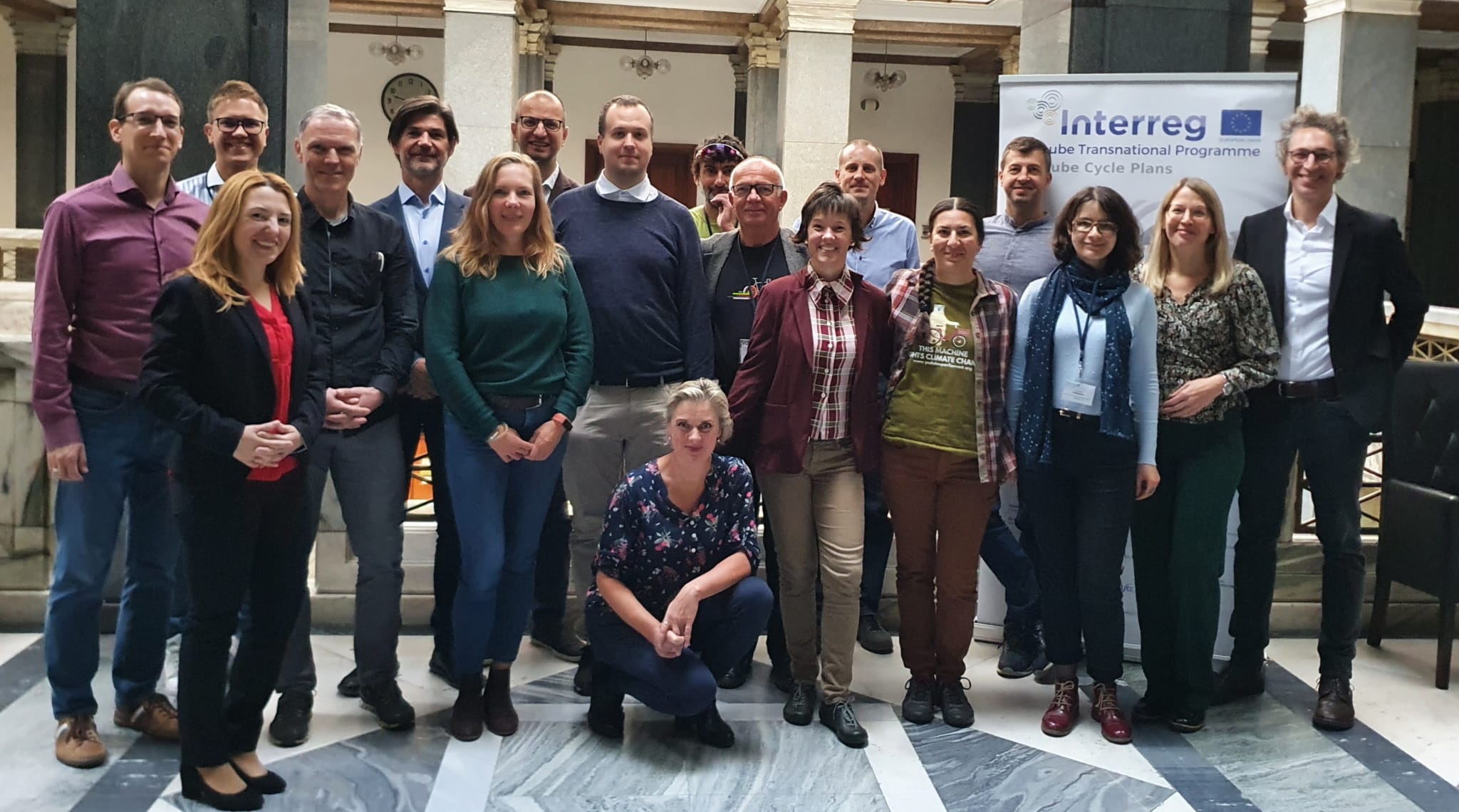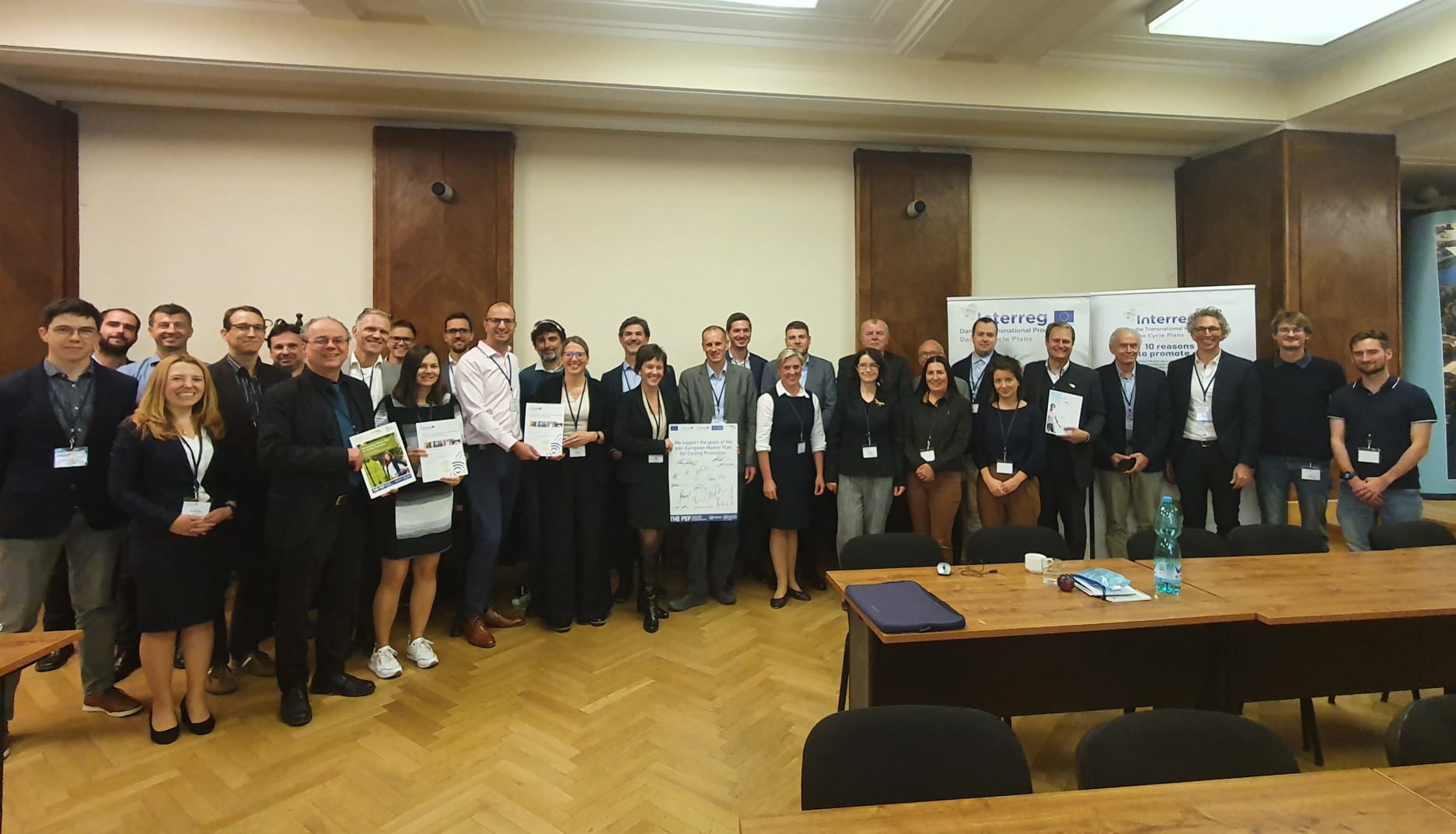Interview with Peter Klučka on the Danube Cycle Plans project results in Slovakia
22-08-2023
Peter Klučka, the National Cycling Coordinator from the Ministry of Transport of the Slovak Republic, shares his views on joining the transnational project, Danube Cycle Plans, funded by Interreg Danube Transnational Programme and on what impact it has had on the development of bicycle transport and tourism in Slovakia. Through this project, Slovak partners were able to collaborate with other European partners and exchange knowledge and best practices in the field of cycling infrastructure and tourism. One of the key achievements of this collaboration has been the development of a national cycling strategy for Slovakia, which aims to increase the use of bicycles for both transportation and tourism.
Feburary 16, 2023

1. How have the project results been used?
Danube Cycle Plans project aimed to implement Pan-European Master Plan for Cycling Promotion. Project activities included the development of National Cycling Plans based on a common transnational Danube Cycling Strategy, defining a Danube cycle route network, infrastructure standards and adequate financial support and increasing the awareness of relevant stakeholders for the needs of cyclists. Currently, the results of the project are already being used in cooperation to the University of Žilina in the process of preparation of the government document “Updating the National Cycling Strategy”, primarily in the area of creating a national network of cycling routes. It was the active cooperation with all partners involved in the Danube Cycle Plans project that laid the foundations for creation of the national network, including cross-border bicycle crossings, while the proposed network respects the individual regional framework networks of bicycle routes.
It was the active cooperation with all partners involved in the Danube Cycle Plans project that laid the foundations for creation of the national network, including cross-border bicycle crossings, while the proposed network respects the individual regional framework networks of bicycle routes.
2. Was the project's impact on policy making as expected?
Certainly yes. Already during the duration of the project, the conclusions from the individual working groups are reflected in the preparation of basic documents for drawing funds from the Recovery and Resilience Plan as well as the Partnership Agreement within the Slovakia Plan. I believe that marginally, but with no less weight, the consultation contributed to the recent amendment of the relevant legislation in the field of strengthening road traffic safety for the benefit of vulnerable road users, pedestrians and cyclists.
3. Have the project results influenced policy decisions or led to any changes in the field?
We are currently in the phase of evaluating individual projects accepted for funding as part of the first calls from the Recovery and Resilience Plan. In this context, the contribution of the project in question, to the development of bicycle transport is generally taken into account, in connection to integration with public passenger transport, especially railway transportation, from the point of view of the possibility of using the bicycle also for cycle tourism purposes.
4. Was there any resistance or challenges to adopting the project results?
Difficulties or complications during the initial integration of the project results were caused in the early phase by different level of information about the outputs of the project on the part of the regional cycling coordinators. From the beginning, we openly communicated to actors in the concerned area the project's purpose and objectives with the aspect of highlighting its contribution to the permanent development of bicycle transport and bicycle tourism in Slovakia. I'm glad we did it.
5. How can future projects better support use of the results to drive positive change?
For example, by media coverage of their positive contributions to the concerned area. But also by naming complications and overcoming them during the duration of the project itself. If I mean media coverage and promotion, then not only from the central level of the project sponsor, but also from the level of all others involved in the process itself.
6. Why do you think international cooperation is necessary and important for the topic you were solving in the project?
Above all, for the possibility of using the knowledge and experience of partners involved in the project from the entire Danube region. At individual thematic meetings, we had the opportunity to learn that our partners are solving similar problems, but the level of development of support for the bicycle transport and bicycle tourism in their country is different in several areas compared to ours. I see the greatest benefit of the project in the willingness to use good experiences and implement them in our conditions, not only in ours interest, but of all the countries associated in the project.
I see the greatest benefit of the project in the willingness to use good experiences and implement them in our conditions, not only in ours interest, but of all the countries associated in the project.
7. What are the main products and outputs of the project and particularly in Slovakia?
I see the main outcome in the area of establishing the basic network of cycling routes in Slovakia, including cross-border cycling crossings, as well as the use of supporting arguments for processing the update of the national cycling strategy. The benefit of the project is clearly the support of the development of bicycle transport and bicycle tourism in Slovakia in the context of cross-border cooperation in the Danube region. The Danube River, as it is included in the name of the project, after all, connects us.
8. Who benefits from your project?
Cities, municipalities, higher territorial units, regional and regional tourism organizations, civil associations dealing with the support of the development of cycling transport and cycling tourism, but above all people on two wheels, whether residents of Slovakia or visitors.

Written in cooperation with the National Contact Point in Slovakia.
